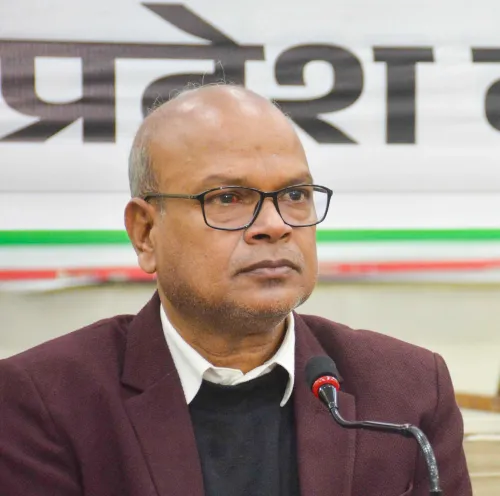Can PM Modi's G7 Attendance Revive India-Canada Relations?

Synopsis
Key Takeaways
- PM Modi's visit to the G7 Summit is a key diplomatic opportunity.
- India-Canada relations have faced significant challenges since 2023.
- Operation Sindoor reflects a strategic shift in India's approach to national security.
- The new Canadian government shows a willingness to understand India's position on terrorism.
- The G7 Summit can potentially restore bilateral ties and enhance cooperation.
New Delhi, June 8 (NationPress) Former Indian diplomat D.P. Srivastava expressed on Sunday that Prime Minister Narendra Modi's forthcoming trip to Canada for the G7 Summit offers a crucial opportunity to mend the strained bilateral relations between India and Canada that have faced challenges since 2023.
In an interview with IANS, Srivastava stated, "The Prime Minister has accepted the invitation to attend the G7 Summit. While the focus is on global issues, leaders often engage in discussions covering a wide array of topics, making this an excellent chance to recalibrate bilateral ties."
PM Modi received a formal invitation from Canadian Prime Minister Mark Carney on Friday for the G7 Leaders' Summit, where India will participate as an Outreach Country. Although not a permanent member of the G7, India's inclusion signifies recognition of its increasing geopolitical and economic influence.
The relationship between India and Canada experienced significant strain in 2023 after then-Prime Minister Justin Trudeau accused India of being involved in the assassination of Khalistani separatist Hardeep Singh Nijjar on Canadian territory.
India dismissed these allegations as "absurd and politically motivated." The diplomatic standoff heightened, resulting in both countries expelling diplomats, halting trade negotiations, and suspending official visits.
"We had previously enjoyed positive relations with Canada, and I believe the new government there has a better grasp of India's stance regarding terrorism's impact," Srivastava mentioned.
"The current administration is unlikely to exploit these incidents for electoral gain. Therefore, we hope this visit will foster a clearer mutual understanding between the two nations," he added.
The summit, set to take place in Kananaskis, coincides with new Canadian PM Mark Carney's expressed interest in rejuvenating economic connections with India.
Srivastava also reflected on the April 16 hate speech delivered by Pakistan Army Chief Gen. Asim Munir, which occurred just days prior to the terror attack in Pahalgam.
He remarked that Pakistan's ideological confusion runs deep: "The ideology of Pakistan remains undefined due to the prevailing influence in that nation… Even before the Constitution was established in 1973, the Supreme Court prohibited the National Awami Party on ideological grounds."
Critiquing Gen. Munir's ideological statements, he said, "It is peculiar that military leaders in Pakistan discuss religion and ideology. In most nations, armies defend borders; in Pakistan, they serve as guardians of ideology."
Praising Operation Sindoor—India's surgical operation targeting nine terror hubs in Pakistan and Pakistan-occupied Kashmir—Srivastava noted it signifies a pivotal shift in India's national security strategy.
"Operation Sindoor indicates a strategic transformation. For an extended period, Pakistan leveraged the threat of nuclear escalation to deter India's conventional responses to terror incidents. This time, there was no mention of nuclear retaliation from Pakistan," he stated.
"Pakistan's bluff has been called. It cannot escalate a local conflict nor prevent India from taking military action against terrorism," he continued.
"This conveys a powerful message globally that India will assert its right to self-defense—responsibly and without escalation," he added.
Srivastava emphasized that India executed the operation with restraint and precision, reinforcing its image as a responsible global power unwilling to tolerate terrorism.










